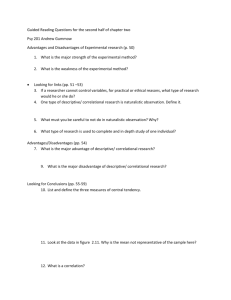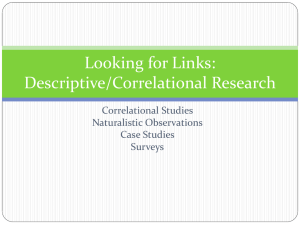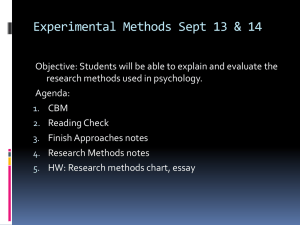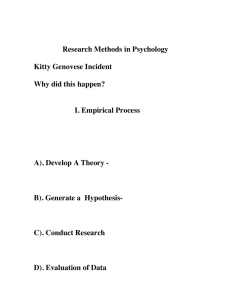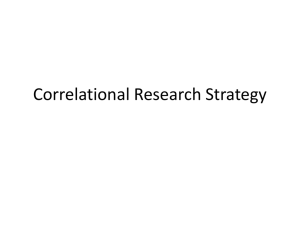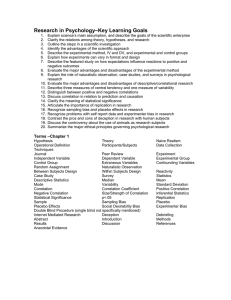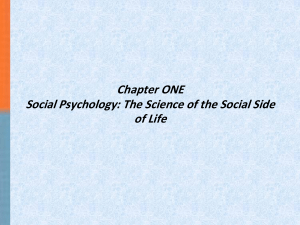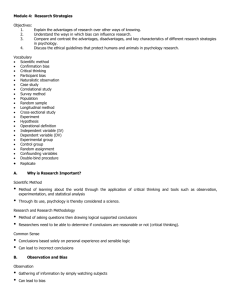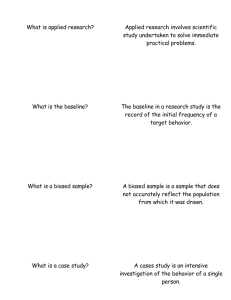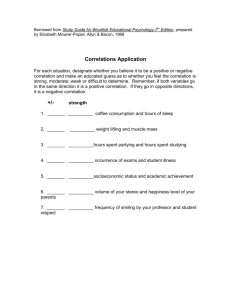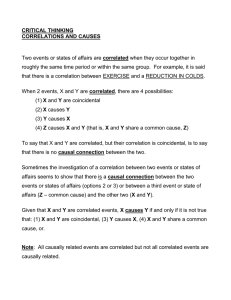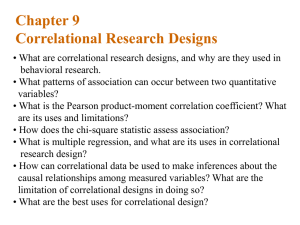Abnormal Psychology
advertisement
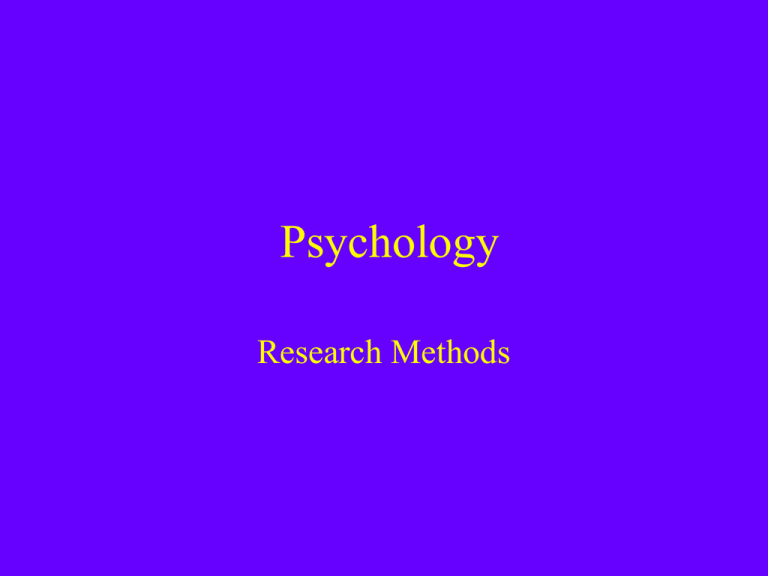
Psychology Research Methods Characteristics of Good Psychological Research Psychological Research • • • • • Naturalistic observation Surveys Case Study Correlational Experimental Correlation • A correlation is a measure of association between two variables (-1 < r < +1) • direction (positive vs. negative/inverse) • strength • • • • perfect correlation (1.0) strong (0.6 to 0.8) moderately strong (0.3 to 0.5) no correlation (0) • cannot tell us about causation The Correlation Coefficient Correlational Research • Establishes whether there is a relationship between two or more variables • CANNOT INFER CAUSALITY 1. Directionality problem 2. Potential for a third variable (confound) Third Variable (Confound) E.g., High IQ Self Esteem GPA Correlational vs. Experimental Research • Smoking is correlated with lung cancer • High grades are correlated with successful careers • Eating Frosted Flakes is correlated with lower cancer rates • In Taiwan birth control use is correlated with number of household appliances Experimental Research • Considered the most powerful tool for determining causal relationships • Random Assignment: ensures that every participant has an equal chance of being assigned to any of the conditions • This minimizes the chance that a preexisting difference between groups is the cause of the “experimental effect” Bias in Research • Sampling bias • Placebo effects • Social desirability bias • Response sets • Experimenter bias: - double blind procedure
